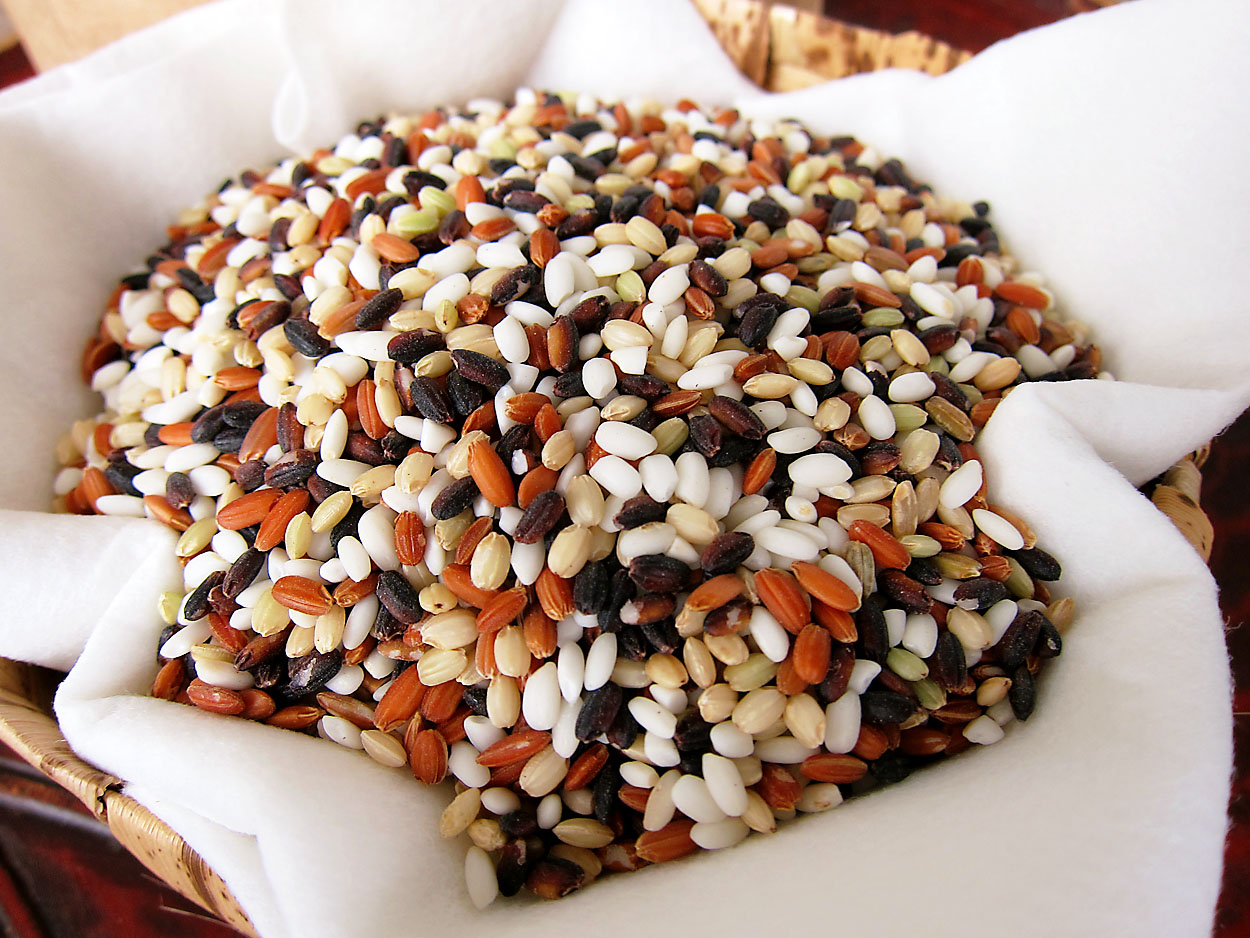Rice farmers in Japan are under siege. Heavily protected on various levels by the central government for decades, they've seen the market for their precious crop eroded by cheaper imported rice, and the administration of Shinzo Abe is proposing ending production-rationing and subsidies. It will be interesting to see how the farmers will cope with this in upcoming years.
One way in which some farmers have already adapted is to concentrate on quality rice grown with care in small quantities, and sold at a premium price — or in other words, artisanal rice. Instead of growing high-yield rice hybrids as most large-scale farms do, these farms concentrate on varieties that taste good regardless of their yield. The rice is usually grown using low-chemical or organic methods, and genetically modified varieties are emphatically avoided. In addition, many of these farmers emphasize the purity of the water that is used to flood their rice fields. For example, Nonki Farm in Harie, Shiga Prefecture, proudly declares that its water source was designated as one of the top 100 natural springs in Japan.
Some artisanal-rice farmers are also trying out heirloom varieties of rice that had been abandoned in the postwar period. Called kodai-mai (ancient rice), these varieties come in intriguing natural colors such as green, red-purple and black. Most have a sticky glutinous quality like mochi or sweet rice.



